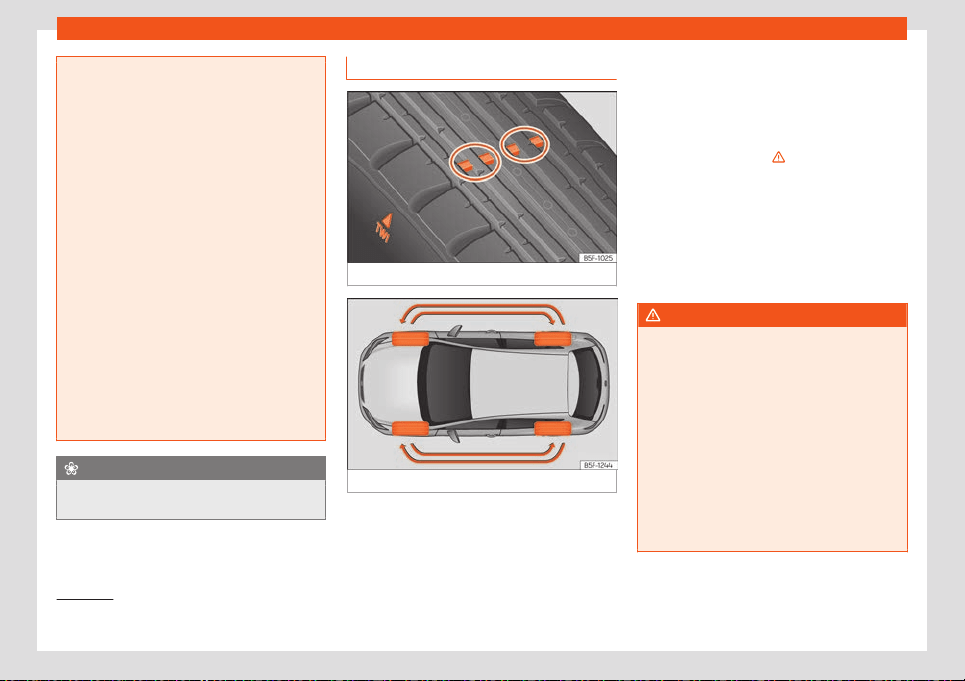Loading ...
Loading ...
Loading ...

Practical tips
●
The driv
er is responsible for ensuring that
all of the vehicle tyres are correctly infla-
ted to the right pressure. The recommen-
ded tyre pressure is indicated on the label
›››
Fig. 240.
●
Check tyre pressures regularly and en-
sure they are maintained at the pressures
indicated. Tyre pressure that is too low
could cause overheating, resulting in tread
detachment or even burst tyres.
●
When the tyres are cold, tyre pressure
should be that indicated on the label
›››
Fig. 240.
●
Regularly check the cold inflation pres-
sure of the tyres. If necessary, change the
tyre pressure of the vehicle tyres while they
are cold.
●
Regularly check your tyres for damage
and wear.
●
Never exceed the maximum permitted
speed or loads specified for the type of
tyre fitted on your vehicle.
For the sake of the environment
Under-inflated tyres will increase fuel con-
sumption.
Tread wear indicators
Fig. 241
Tyre profile: tread wear indicators.
Fig. 242
Interchanging tyres.
Wear indicators around 1.6 mm high can be
f
ound on the base of the original tyre treads,
ordered at regular intervals and running
across the tread
›››
Fig. 241. The letters "TWI"
or triangles on the sidewall of the tyre mark
the position of the wear indicators.
The minimum permitted profile depth
1)
have
been reached when the tyres have worn
down to the wear indicators. Replace the
tyres with new ones
›››
.
Changing wheel
s around
To ensure that the wear is equal on all tyres
the wheels should be changed round from
time to time according to the system
›››
Fig. 242. The useful life of all the tyres will
then be about the same time.
WARNING
The tyres must be replaced at the latest
when the tr
ead is worn down to the tread
wear indicators. Failure to follow this in-
struction could result in an accident.
●
Particularly in difficult driving conditions
such as wet or icy roads. It is important that
the tyre tread be as deep as possible and
be approximately the same on the tyres of
both the front and the rear axles.
●
The scant driving safety due to insuffi-
cient tread depth is particularly evident in
vehicle handling, when there is a risk of
“aquaplaning” in deep puddles of water
1)
Follow the regulations of the country you are
driving in.
348
Loading ...
Loading ...
Loading ...